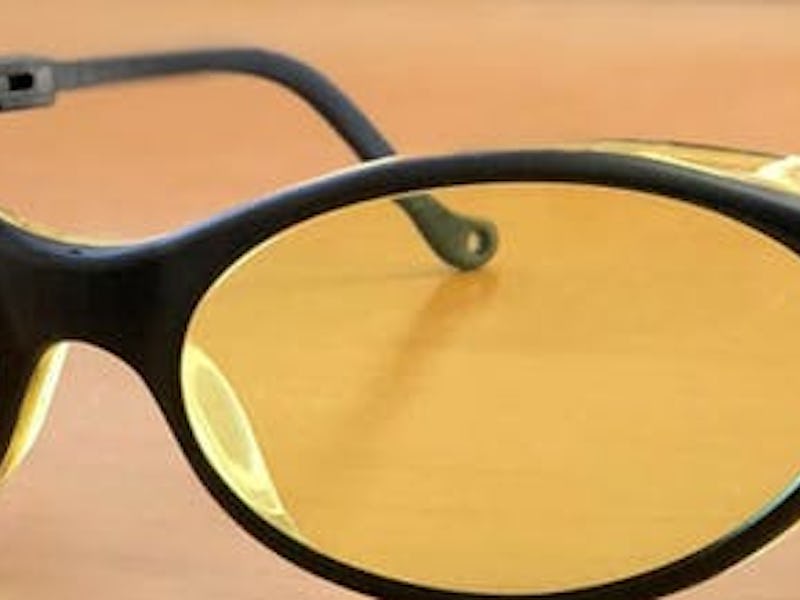Why Sleep Scientists Want You to Wear a Guy Fieri Accessory
This fashion no-no is a science yes.

Moonlighting as a chef, entertainer, entrepreneur, and TV personality, Guy Fieri is a lot of things. But what he is likely not, a new study in Journal of Psychiatric Research suggests, is an insomniac. Wearing amber-tinted wrap-around shades at the appropriate times, the study shows, may help block out the blue light from electronic devices that disturbs a good night’s sleep.
Scientists have known for a long time now that the blue light emitted from cell phones, TVs, laptops, and tablets interrupts the sleep cycle, but it’s become increasingly obvious that people are unwilling to stop scrolling through their devices before bed, no matter how much they know it messes with their sleep cycle.
In their attempt to find a sleep hygiene intervention that people would actually stick to, the Columbia University Medical Center researchers behind the small study figured it’d be easiest to make people wear a contraption that cancels out the effects of the offending device, even if that contraption makes them look like the frosty-tipped host of Diners, Drive-Ins, and Dives.
Celebrity chef and entrepreneur Guy Fieri is known for his wraparound shade collection, which occasionally come in shades of amber.
The amber-tinted glasses they used in their study block out the blue light from screens that suppresses melatonin and increases alertness and thereby mitigates its effects on the circadian rhythm. They confirmed this in tests on 14 people with insomnia who, for seven consecutive nights, wore the amber-lensed wrap-around shades for two hours before going to bed, during which time participants basked in the glow of their various devices, as usual.
Comparing their sleep habits to those of the control group subjects, who wore similar shades with clear placebo lenses, the researchers discovered that the people who wore the amber lenses got an average of 30 minutes extra sleep than their counterparts. Furthermore, they reported sleeping more soundly and for longer stretches of time, and overall they felt their insomnia had become less severe.
This guy probably sleeps well.
It’s a small study, but the results warrant further investigation, especially considering that 90 percent of Americans are known to use their devices in the hour before bed. That’s likely linked to the one-third of Americans who, according to the Centers for Disease Control, sleep less than the recommended amount of sleep (anything less than seven hours in a 24-hour cycle).
Amber-tinted glasses are thought to block out the blue light that causes insomnia.
Currently, the CDC recommends that people remove all electronic devices from the bedroom in order to improve their sleep hygiene, which is a tremendous ask for the phone-dependent among us. But if research on the amber lenses continues to show their usefulness, a far less drastic — albeit fashion-backward — sleep intervention may soon be in our future.